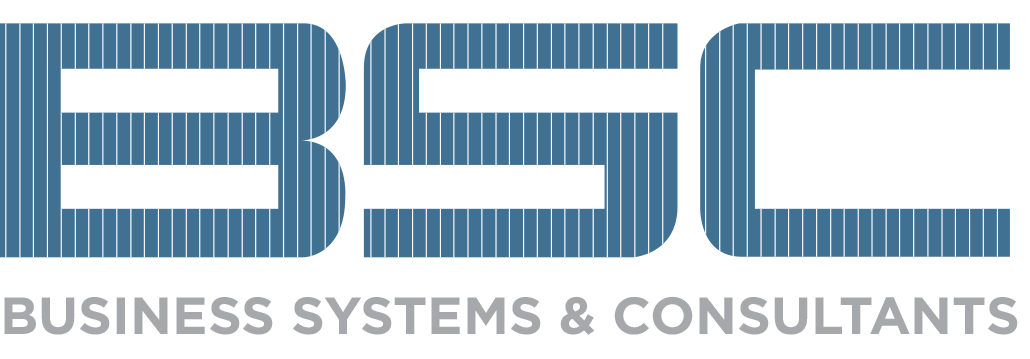Electronic Health Records (EHR) : How They Benefit The Health Care Industry
As an employee in the health care industry you know wait times can be excruciating for patients. Especially when they are sick and in need of medications. It is known that paper records and files can slow a practice down tremendously. Business Systems and Consultants, Inc have found that electronic health records (EHR) can have a successful impact on industries in Alabama, Mississippi, Tennessee, and other surrounding states, even worldwide. Let’s jump into some advantages practices have seen or could be seeing with EHR and what some of the benefits lead to when you go paperless in the office.
How Technology Has Established Itself
As we all know, technology has become a bigger part of today’s makings. Things we do with technology would have never been thought of back in the day. Although some may see it as a bothersome transition BSC helps each company succeed with the transformations of technology. For this particular topic on the health care industry and electronic health records or EHR, we have seen many companies grow in profitability, security, efficiency, and employee productivity.
The American Health Care System
The American health care system has been undergoing serious changes – those for the better – to help keep patient wait times low, to have more accurate charts and records for patients, and quickly offer diagnoses to patients with the transferring of records between clinicians who have worked with that patient in the past.
Imagine if you, as a patient, had to wait months for blood work and lab work to be tested to get a diagnosis of why you may be feeling less energetic or sick. With electronic health records, lab work can be distributed to clinicians much faster to bring you results sooner.
Patients and Physicians Can Benefit From Electronic Health Records (EHR)
Everyone can benefit from electronic health records (EHR). Just a few of the benefits include:
- Reduced errors from employees and more accurate and updated records
- Complete and clear records – saving from those employees who may not have the best of handwriting
- Like mentioned above, more complete information means more accurate diagnoses
- EHR shared between clinicians who have worked with one particular patient could mean money and time saved on patients and their providers
- Better information not only means more accurate results but also makes prescribing medication safe and more reliable
- With EHR, patients could be more involved in their record processing and that could promote a healthier lifestyle as they keep up with their records sent to them through their physicians.
The HITECH Act
U.S hospitals and clinical practices were given a boost in adopting electronic records as part of the 2009 Health Information Technology for Economic and Clinical Health (HITECH) Act. The HITECH Act set the goal of improving overall patient care by providing clinicians timely access to all the information they need for better diagnoses and patient outcomes. To start the shift from paper-based to digital systems comes from the help of BSC and we use the best technology and highly trained representatives to help keep that shift smooth and stress-free.
How These Advantages and Benefits Affect Health Care Practices
Both patients and health care staff should see a great deal of advantages and benefits when switching all paper records and files to a more advanced electronic health record (EHR) digital format. Advantages and benefits between both the patient and physician could be any or all of the following:
- A comprehensive view of the patient.
- This should encourage providers to strive to have dynamic patient-centered records that track the care, ongoing, of the person’s lifetime. Having a single, continuous record for a patient provides a holistic view of overall health for better diagnosis and lifetime treatment.
- A highly organized coordination of care.
- Digital records can more easily coordinate and track patient care across practices and facilities. One example, the Mayo Clinic offers a one-stop care system that provides the services a patient needs which could be office visits, testing, surgery, etc. under one roof so services can be coordinated and scheduled over the course of a single visit.
- Electronic health records give clinicians the opportunity to share information much easier.
- When records are shared between clinicians this allows for more timely decision making on a patients wellness.
- Streamlined workflows with electronic health records (EHR) increase productivity.
- EHRs not only increase productivity but increase efficiency in the workplace. This is all done by cutting down on paperwork. Patients and staff have fewer forms to fill out, leaving clinicians with more time to see patients and build a trusting relationship to keep patients coming back for medical purposes. Automatic reminders can tell patients when it’s time for yearly checkups or alert them as they approach times for regular screenings. Integrated patient tracking, billing and insurance claims can be filed in a timely manner saving the hassle you would otherwise have with paper documents.
Better Security, Efficiency, and Productivity. What More Can We Say?
No health care practice can say they wouldn’t be pleased with better security, faster patient wait times, and higher employee productivity times. Practices all across Alabama, Mississippi, Tennessee and leading states can see all this and more when converting to a digital work place and exchanging those long drawn out, hard to read paper records for electronic health records (EHR).
Think you’re long overdue for change? Want to see success in your health care practice? Contact a local BSC representative for more details on going digital and learn more about electronic health records (EHR) and their benefits. If you’ve gone paperless, what changes have you seen in your practice? Let us know in the comment area below!
